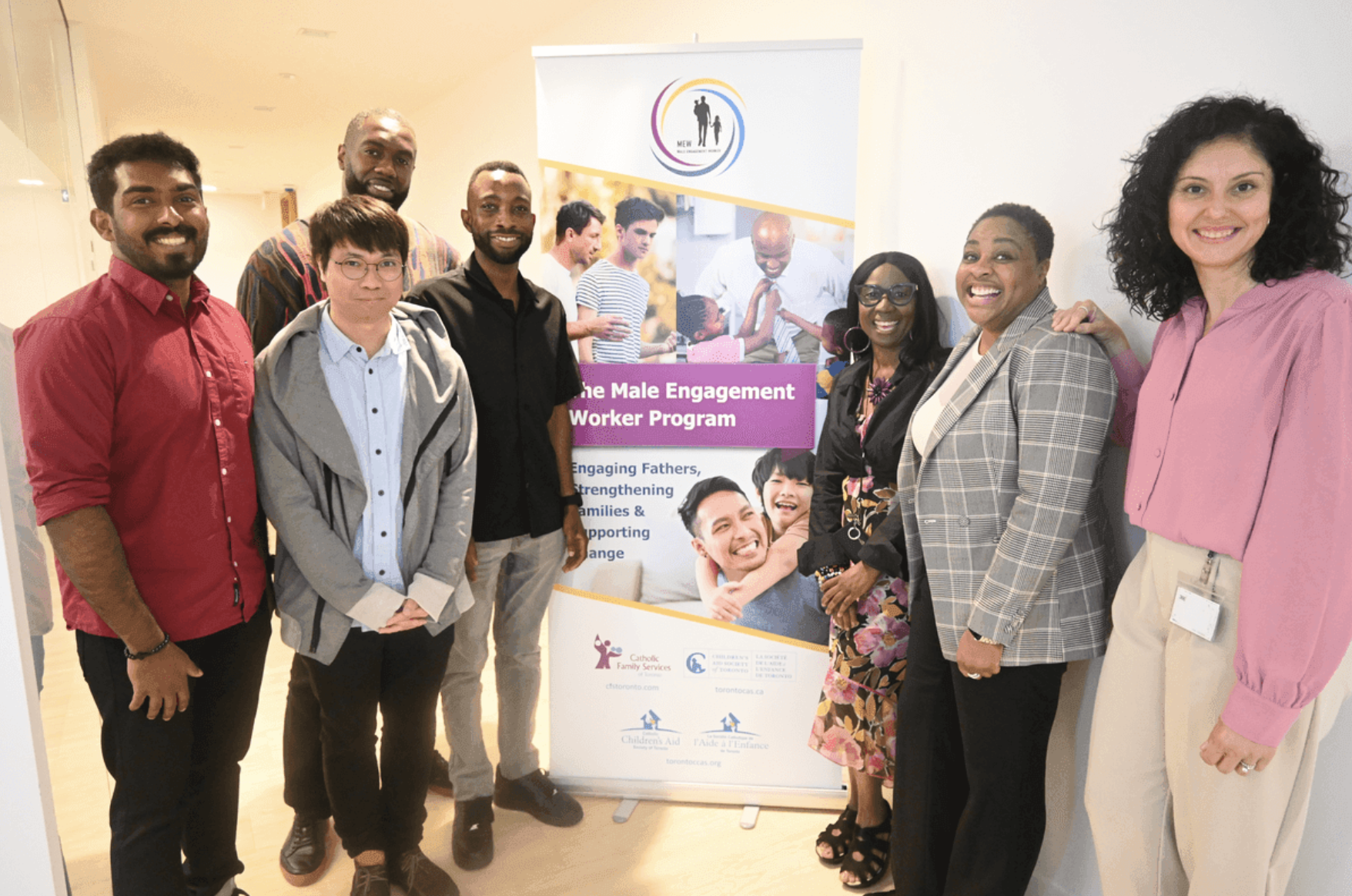TORONTO (CCN) — In a partnership between Toronto’s Catholic Children’s Aid Society, Catholic Family Services and the Children’s Aid Society, a new program is bringing men to the front line in the fight against intimate partner violence.
The first of its kind in child welfare in Ontario, the Male Engagement Worker Program (MEW) is grounded in a shared Catholic ethos of family unity, redemption, accountability and compassionate support. It addresses long-standing gaps in child protection by meaningfully involving men, both fathers and male caregivers, in situations involving domestic violence while prioritizing safety, accountability and healing for the family as a whole.
Launched on Sept. 24, the MEW program is quickly finding its footing in November, Woman Abuse Prevention Month. Program workers have already delivered 77 pre-referral consults to CAS workers, and 11 clients have completed a “Being Dad” men’s circle program offering, with 12 more currently enrolled.
Jeofry Bollers, a male engagement worker with Catholic Family Services of Toronto, has been with the program since its pilot. For him, the difference from traditional child welfare responses that may typically treat fathers as risks, not resources, has been eye-opening for the men involved.
“My job is to engage with the men who are involved in any type of dispute or hostility that has happened within the family where Children’s Aid would get involved. Our role is primarily to sit down with him, find out what’s going on, offer him services, resources, counselling, while giving him the opportunity to share what’s going on right from his perspective so that we can find a level of accountability for the things that have happened while reintroducing his responsibility to effectively parent and be an active member of his family,” Bollers said.
Day to day, the program operates with CAS opening a file involving a domestic conflict. A worker then meets the family to explain MEW services, with a MEW working meeting with the man if he is interested. Bollers shared that, even in just a short time, there have been many interactions with fathers that cemented this approach as one capable of breaking the cycle of intimate partner violence.
Further, as a space for men to be open and honest, the program is finding that bringing men together to be part of the solution is contributing to domestic violence prevention, rather than just intervention.
“I think there’s truth that, as men, we can be utilitarian where we go into autopilot and provide, but we don’t necessarily always tap into our emotions, feelings or things that we cover deeply. This group allows men to be in a safe place, have real conversations as guys and just take the armour off,” Bollers said.
“Men realize they don’t have to be Superman, but rather dissect and break through certain things, come to terms with them, see certain things from their partner’s perspective as to why things might have escalated and realize that abuse comes in many different forms.”
The need for such conversations and education remains urgent in Ontario, with police-reported intimate partner violence rates continuing to rise. Data from the Ontario Provincial Police showed that the number of such calls increased by over 18 per cent last year over the previous year, and between November 2022 and November 2023, 31 per cent of gender-related killings in Ontario were due to intimate partner violence.
Serious cases of intimate partner violence have left men incarcerated, something Bollers has witnessed firsthand, having worked as a corrections officer for over a decade. Now, through the MEW program’s unique approach, he is hoping to break the stigma, show men that help isn’t punishment and lead them on a compassionate path.
“ I’ve seen men on the other side of the wall they are up against, and they don’t have a choice; they have regrets. Part of the passion that I have for this is the fact that I can reach them before they have to be behind that wall,” he said.
While he understands their faults, he attests that when people actively listen, many men are remorseful for the hurt they have caused.
“Men I speak with that have been charged, arrested or taken out of their homes have thought for so long that we are going to just tell them they were wrong, but even just hearing their story without interruption diffuses and allows them to process what happened. In 99 per cent of cases, when I ask if he could have done something differently, they would say, ‘Yes, absolutely.’”
Bollers hopes more programs like MEW will launch across Ontario, ensuring every dad in crisis has an outlet.
“To have a small fraternity where you know you’re in a safe place and tell men that you hear them, but you know they can be better, and you have our support to be better, I think will be an amazing thing to see and watch grow over the next 10 years,” he said.




